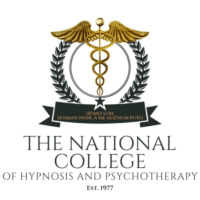Stage 2
Integration and Therapeutic Flexibility
Stage 2 marks a significant developmental step in your training pathway, extending over nine months and designed to consolidate and expand upon the foundational competencies established in Stage 1.
The primary focus of this stage is to deepen your engagement with our three core theoretical orientations (Person-Centred, Ericksonian, and Solution-Focused) within a pluralistic framework that encourages responsiveness to client individuality.
Skills introduced in Stage 1, such as active listening, relational hypnosis, and collaborative goal-setting, are revisited and extended to foster a more sophisticated understanding of the change process.
At successful completion of Stage 2, you will be competent to move into practice as a hypnotherapist and trainee psychotherapist, equipped with the theoretical grounding and practical adaptability to work ethically, relationally, and effectively in private practice
Stage 2 Components Breakdown
Module 6 - The Person-Centred Relationship
-
Person-centred theory
-
Rogers’ theory of self
-
Deepening the core conditions
-
Relational depth
Module 7 - Relational Ethics in Context
-
Ethical decision-making models
-
Ethics in a relational context
-
Working within the Code of Ethics
-
Power dynamics in therapy
-
Introduction to intersectional approaches
-
Utilising supervision
-
Ethics Assessment
Module 8 - Ericksonian Approaches
-
The Ericksonian relationship
-
Utilisation
-
Ericksonian approaches to hypnosis
-
Creative uses of language
-
Ericksonian story and metaphor
Module 9 - Solution-Focused Approaches
-
Solution-focused principles
-
Working with emotions in the solution-focused approach
-
Cultivating resources
-
Building a compelling future
-
Use of scaling questions
-
Integrating hypnosis into solution-focused approaches
-
Person-centred, Ericksonian and solution-focused integration
Module 10 - Somatic and Trauma-Informed Perspectives
-
What we mean by trauma-informed
-
The window of tolerance
-
Somatic expressions of distress
-
Working with the felt-sense
-
Phased approaches to treatment planning
Module 11 - Ego-State and Inner Child Work
-
Working with ego-states or ‘parts’
-
Introduction to attachment-informed approaches
-
Approaches to working with the concept of the ‘inner-child’
-
Working with regression
-
Introduction to reparenting approaches
Module 12 - Working with Anxiety and Depression
-
Working with risk assessment
-
Working with suicidal ideation and intent
-
Integrative approaches to working with anxiety
-
Integrative approaches to working with depression
Module 13 - Endings
-
Understanding different types of grief
-
Working with grief
-
Different kinds of endings in therapy
-
Developing therapeutic endings
-
Consolidation
Stage 2 Assessment
-
One formative triad review
-
One blended ethics assessment
-
One 2000-word one-session transcript analysis
-
One 3000-word theoretical essay
-
One seven-session case study
Classroom Hours
-
141 overall classroom hours
-
At least 96 live in-person hours
-
Up to 45 live (via Zoom) hours
-
180+ estimated self-directed hours
